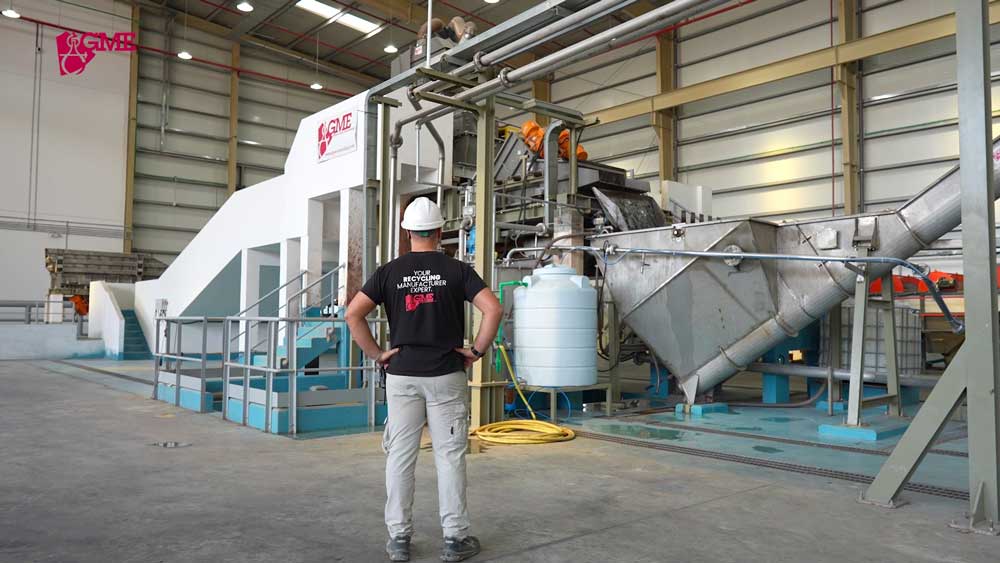Plastic Recycling
Recycling Plant Technologies from A to Zeta
Explore each critical aspect of recycling technologies across the spectrum of aluminum, non-ferrous metals, plastics, and lead-acid batteries, with insights that shape efficient, eco-friendly recycling processes. A – Automated Sorting Automated sorting technologies use advanced sensors to categorize materials like aluminum, plastics, and metals accurately. With options like optical sorters and AI-based recognition, these technologies improve sorting efficiency and material
Global Polypropylene Recycling Market: trends, challenges, and opportunities for sustainable growth
The global market for polypropylene recycling has been growing steadily as industries and governments focus on sustainability and reducing plastic waste. Polypropylene (PP) is one of the most widely used plastics, particularly in packaging, automotive, and consumer goods, which creates a substantial amount of waste. Recycling polypropylene not only reduces environmental impact but also helps to recover valuable resources, making
Understanding Polypropylene Recycling: solutions for a sustainable future
Polypropylene Recovery from Lead Acid Battery Scrap: innovative approach by GME Recycling Team
Polypropylene, a widely used plastic in battery casings, has historically posed significant recycling challenges due to contamination and composition complexity. Through recent advancements, GME has developed an innovative recycling plant, implementing efficient processes to shred, wash, decontaminate, and separate polypropylene from lead-acid batteries. With the use of advanced sorting techniques, including wavelength-based color detection, GME achieves a purity level of
PRI Recycling: revolutionizing waste management practices
One innovative approach that has gained significant attention is PRI Recycling. This comprehensive guide delves into the world of PRI Recycling, exploring its processes, benefits, and its pivotal role in shaping a more sustainable future. What is PRI recycling? PRI Recycling, which stands for Plastic Recycling Industries, is an advanced waste management approach that focuses on the efficient recycling and
Plastic recycling line: innovative plants for Re-Use of Plastics Components
In today’s world, innovative solutions are needed to revolutionize plastic recycling. From recovering polypropylene in battery recycling to harnessing energy from car shredding fluff, these innovative processes offer sustainable solutions. Additionally, CDR Energy Re-Use turns waste into power, while purification technology transforms car shredding residue into valuable resources. Join us as we unveil the high-quality outputs of plastic recycling and
GME Recycling: Experts in Recycling plant engineering and consulting
GME Recycling, a leading engineering and design consultancy in the implementation of recycling facilities for lead-acid batteries, plastics, and metals, is at the forefront of this movement, offering practical solutions to companies wishing to implement eco-friendly strategies. With a focus on collaboration and client input, we at GME Recycling create optimal design solutions that integrate seamlessly with existing facilities. By
Investing in Recycling Technology: A Smart Move for Industry Leaders
In today’s world, where sustainability and environmental consciousness are becoming increasingly important, investing in recycling technology is not just a responsible choice but also a smart move for industry leaders. This article will explore the benefits of investing in recycling technology for both large companies and entrepreneurs, with a focus on key areas such as lead-acid batteries, aluminum and metal
Sourcing Spare Parts for Recycling Plants: A Comprehensive Guide
In this comprehensive guide, we will provide recycling plant operators with valuable insights on sourcing spare parts for their equipment. Operating a recycling plant is a crucial endeavor, and ensuring the availability of quality spare parts is essential for maintaining efficiency and sustainability in the long run. The Importance of Quality Spare Parts Efficiency and sustainability are the cornerstones of
Unwrapping the Truth: Is Starting a Plastic Recycling Business Profitable?
What plastic recycling entails Plastic recycling refers to the process of converting plastic waste into new products. The process begins by collecting plastic waste which is then sorted out depending on the type of plastic. The sorted plastic is then cleaned to remove any debris or contaminants, after which it is shredded into tiny pieces or pellets. These pellets are










